Episodes
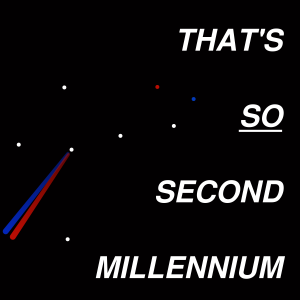
Monday May 06, 2019
Episode 058 – Let’s Act Like We’re on the Winning Side (Since We Are)
Monday May 06, 2019
Monday May 06, 2019
This ended up being an emergency episode Paul recorded solo, since Zencastr ate all but a few minutes at the beginning of each recording. There seem to be serious problems with Zencastr since Paul’s MacBook died and he had to resurrect his Windows laptop.
The Big Bang; cosmology seems to require a beginning, uncaused cause
Problems of mind; intellect / qualia, possibility of free will.
There is no materialist explanation of human intellect, only assertions of dogma and crude shufflings of the feet.
Ongoing occurrence of miracles, Lourdes medical board, Fatima, Shroud of Turin; Bob Schuchts
There are far too many miracles and supernatural phenomena that defy materialist explanation: Eucharistic miracles, healings at Lourdes and elsewhere, Fatima, demonic possession…
The testimony of the first Christian disciples requires absolutely crazy explanations that themselves defy our best science even if we reject the idea that Jesus rose from the dead.
The continuing existence and expansion of the Church in the face of persecution is likewise historically unparalleled, save only for the continued existence of Judaism.
Second of all, it provides perspective and healing for human problems that nothing else does.
John Warner Wallace from Breakpoint podcast; LAPD homicide officer
What has God done in my life... we GET to that, we don't start there like Mormons
Christianity provides a shockingly direct answer to the question of evil: the transcendent, all-good God is Himself willing to experience it.
The Christian faith continues to spread in Africa and Asia in the face of continued persecution, whether of the violent or of the brainwashing variety. Why is that?
The attempts of Western society to escape Christianity have made us amazingly miserable amid all our material possessions and security. Why do we so halfheartedly turn away from these distractions?
The most characteristic failing of our age, I would argue, is addiction, and addiction has evoked a powerful response in the form of the Twelve Steps. Although these Steps are deliberately offered to everyone with no attempt made to proselytize them to any specific religion—indeed many recovering addicts refuse to identify themselves as religious—nevertheless, the principles of the Steps are completely and suspiciously consistent with Catholic Christianity.
The Catholic intellectual tradition has a tremendously formidable intellectual structure, the most robust philosophical realism, an enormous storehouse of moral philosophy and psychological insight, and a wealth of stories of human drama in the lives of both saints and sinners.
Why do we slave along as intellectual second or third-class citizens in the modern world? I was just looking at the want ads of literary agents and realized that they are all blithely “progressive” members of the stumbling, bumbling cultural vanguard. Our culture is shaped by stories forged out of this nihilistic experience of forgetting an entire civilization’s worth of wisdom.
We are looking to help out at the Society of Catholic Scientists Conference this year, and are in talks about how we can do that. We’re really excited about working to create a greater sense of community among Catholic scientists!

Monday Apr 29, 2019
Episode 057 – The Best Thing Out There
Monday Apr 29, 2019
Monday Apr 29, 2019
Apologies for the sound quality today; Zencastr wasn’t working, so we recorded on Zoom, and even then there were problems with the audio especially in the latter half of the podcast.
The question we take up at the beginning of the Easter season is this: Why has Western society gone to such pains to throw away the best thing going, intellectually and otherwise?
In his ongoing podcast research, Paul has come across the Pat Flynn Show, and listened to some really good interviews with Fr. Robert Spitzer (a TSSM interviewee) and Ed Feser (whose talk at the 2018 Society of Catholic Scientists conference was the topic of one of our most popular episodes). Bob Spitzer’s interviews in particular were some of the most inspiring things I’ve encountered recently and really led me to propose this series of conversations with Bill about how Catholic Christianity is the best way of looking at the world.
Of course, Western society has drifted hard away from its roots in classical Greek and Jewish/Christian heritage. Ireland is the most recent example of a society, one of the last to retain a semi-traditional cozy relationship between the Church and the state, now deciding to punish the Church for the crimes of the hypocritical members of its clergy by trying to erase its very history. Progressivism in general replaces traditional dogmas with dogmas-of-the-day, and the record up to this point has been pretty dismal.
We spend some time discussing the roots of what the contemporary West seems to consider its greatest achievement, modern science, in the critical tradition of Scholasticism (knowledge of which was practically the first thing to go after the Reformation began the process of intellectually punishing the Church). We would do better to have a broader memory of the Scholastic tradition even among us Catholics...to recall that it was a movement in which Thomas Aquinas was embedded, rather than remembering only him. In our time as well we don’t need single hero figures, we need a community. The scientific community knows this very well.
We go on to consider what this fraught term “dogma” really means. The Christian dogmas are really testimony, and they can’t change without repudiating the unrepeatable testimony of the events of salvation history. This is the context of the warnings at the end of the Apocalypse of John, “cursed be he who adds or takes away from the words of this book.” As Chesterton and many others have pointed out, these dogmas are not a straightjacket but a foundation and structural members that allow us to build both intellectual structures and actual human lives that don’t sink into the morass of changing human inventions. Admittedly there are many Christians, Catholics included, who seem to take comfort in the false idea that the Bible, or Tradition, provides us all the answers we could possibly want to know and there is no need or use in further growth. That is not the teaching of Jesus when he commented that the Spirit would [future] lead us to all truth.
The high Middle Ages confronted the question of harmonizing Aristotle with Jesus Christ. This was both a creative and a logical process that led to great works of criticism and synthesis… excellent practice for the scientific process as we now know it.
A reminder that the Society of Catholic Scientists Conference is approaching June 7-9. Registration is open through May 15.
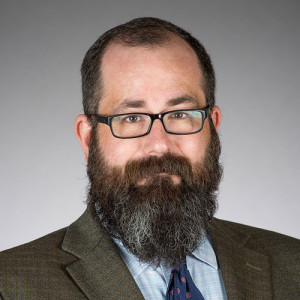
Sunday Mar 31, 2019
Sunday Mar 31, 2019
0:00 - The question of relativism vs. hyperrationalism
1:00 - God's love is not a "fact" but, say, hominid ancestry is
1:30 - Tapping into the belief in the rationality of science to bring back belief in reality in faith
2:30 - "Kicking in the back door of relativism"
4:00 - Linkages between theology, philosophy, and science: e.g. logical consistency
5:30 - Effects on the rest of schools that participate in the Science & Religion Initiative
6:30 - Encouragment to integrate, say, history, economics with faith as well
7:00 - Congregation for Sacred Doctrine 1977 "The Catholic School"
8:00 - Faith & literature, arts
9:30 - The true limits of dogma; need to understand how limited Catholic dogma really is, and how non-restrictive
13:00 - Teachers woefully overworked and underpaid, not given the ability to succeed
14:30 - Blessed to have excellent but also humble panelists & experts intending to listen to one another
19:00 - Story of the second & first editions of Baglow's textbook
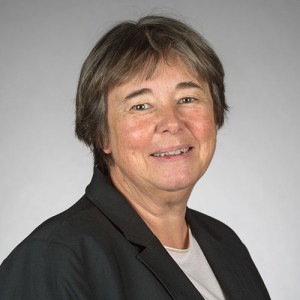
Thursday Mar 28, 2019
Bonus Episode - Patricia Bellm: Compartmentalization vs. integration
Thursday Mar 28, 2019
Thursday Mar 28, 2019
Compartmentalization by students at Notre Dame
Bill: ethics as a checklist
The Science & Religion Initiative (see Baglow & Martin interview)
The need to get the same message in the biology class and in theology class
The change in the teachers after a few days in the workshop: divisions fade out
It's a challenge having an "athletics" teacher in the program (phys ed)...
Yet there are things: doping and respect of the body
Patricia believes "you become what you eat" applies to violent video games as well
Feed yourself and your children good things instead
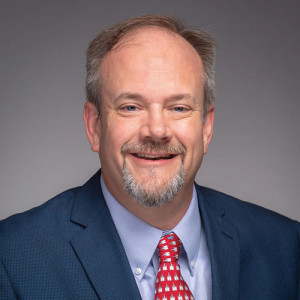
Monday Mar 25, 2019
Monday Mar 25, 2019
0:30 - McGrath Institute for Church Life: Science & Religion Initiative outreach to high school teachers to integrate science & faith
2:00 - Gulf Coast Faith Formation Conference (a good time to be away from Notre Dame)
3:00 - Summer seminars: Foundations Notre Dame, Foundations New Orleans, Capstone
4:00 - Foundations ND: lecture based, top scholars in specific disciplines, with workshops
6:00 - Foundations NO: experimental work and discussions
7:00 - Dialogue between science & theology teachers about their own specialties
8:00 - Capstone: topic-based theme & lecturers; special track for administrators; teaching practices
11:00 - Templeton Foundation study showing schools already trying to do this on their own
12:00 - The need to do this well and not engage in pseudoscience or gloss over tough questions
14:00 - ICL team making "housecalls" to individual schools
14:30 - Baglow textbook on science & faith
18:00 - Vast multiplication of interest from schools just since 2011
19:00 - Real motivations for believing faith is inconsistent with science: the need for hope [and, not made explicit, the appropriateness of hope]
20:00 - "I thought I was the only one"
21:00 - The historical and emotional impulse: rebellion against Christian hypocrisy
22:30 - Baglow makes the Fulton Sheen point: "I also hope THAT God doesn't exist!"
23:00 - The questions he wishes people would ask about God, meaning, science, etc.
24:00 - "What do you mean by 'God creates everything'"
25:00 - The nature of the discourse we encourage
26:30 - "I don't know"
27:00 - "When did science and religion enter into conflict?" - because they have not always been
28:20 - The true role of the university in integrating human wisdom
30:30 - Newman on evolution in the context of Development of Christian Doctrine

Monday Mar 18, 2019
Monday Mar 18, 2019
What do we want to do in this podcast?
Goals for the year
Values of experience, e.g. Mexico: solar ovens from recycled materials
Credit consulting, etc., for exploited women in Mexico
The little estate in Mexico
Back to credit cards & exploitation of ignorance
Responsibility of those to whom much is given
Bringing it around to science
Career and sacrifice and little deaths
Chris, the handicapped man at the ND Center for Social Justice
The ethics of "fixing" or preventing Chris from being the way he is
The lack of philosophic background and the intellectual amnesia of contemporary science
Philosophy of science and the disappointment of 20th century physics, but the culture goes on unaware
Science, fundamentally cannot replace faith
...this is where Patricia makes that claim that science is about control
Ethics of changing human beings, other elements of creation
Bill poses the relativism question again
Patricia responds that "you can control science"
Everyone confronts the same Reality, and we cannot control it, but we prefer the illusion that we can
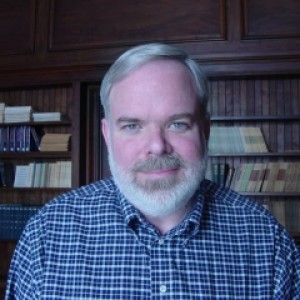
Monday Mar 11, 2019
Episode 050 - Craig Lent: decoherence, entropy, and faith
Monday Mar 11, 2019
Monday Mar 11, 2019
0:00 - Three issues: entropy, decoherence, Schrodinger vs. Dirac equations
2:30 - Schrodinger uses a non-relativistic Hamiltonian, with a p^2/2m kinetic energy
3:00 - Dirac equation absorbs special relativity by shifting from scalar to spinor field
4:00 - Quantum field theory as a further extension, accommodating fields that include many particles
5:00 - Field Lagrangian and all the particles and interactions in the Standard Model
6:00 - Even "everyday" gravity is in some sense accommodatable in the theory, just not extreme gravity capable of "separating out the vacuum"
8:00 - Decoherence, not to be confused with the measurement problem
9:00 - Decoherence arising from the interaction of a simple system with other systems
10:00 - Reduced density matrix begins to look classical
11:00 - Zurek and the work on decoherence: states that are "chosen" to survive interaction with the environment
11:30 - Measurement problem not solved by this work
12:30 - Entropy: the proposal that entropy is most fundamentally lack of information
progress from the special case of thermodynamic entropy, to statistical mechanics,
to von Neumann's quantum definition, to Shannon's information theory
21:00 - Craig's career: why is an engineer so interested in the fundamentals of physics?
24:00 - Journey of faith
30:30 - People of Praise in Indianapolis
31:20 - Final thoughts
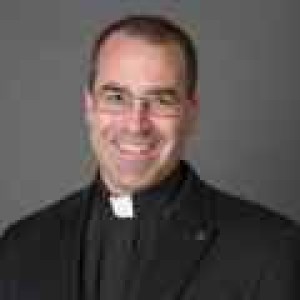
Monday Feb 25, 2019
Monday Feb 25, 2019
0:00 - Science is materialist by method, but scientists need not and should not be materialist by philosophy
2:00 - The world must be real and intelligible for science to make sense
3:00 - And faith provides a philosophical basis that allows this to happen
3:30 - Students' testimony on faith and science
4:30 - Removing the faith/science obstacle is only one step on the road toward faith
5:00 - God vs. Godzilla
6:00 - The true God and His use of secondary causes
11:00 - Creation as carmen Dei (song of God; Bonaventure)
12:00 - vs. strepitus naturae
15:00 - Thought and spirit vs. matter
[This harks back to, e.g., the Ed Feser talk at the SCS conference. I personally think there is an enormous gap--bridgeable, but still to be bridged--between these arguments that the ability of the mind to generate and handle abstract concepts implies a non-material component to thought on the one hand, and the work of modern neuroscience to track the activity of neurons around the brain in specific patterns as we think.]
17:00 - Philosophical gaps in the picture of existence without God
18:00 - Infinite regress of causes, temporal/efficient causes and extra-temporal
19:00 - Postmoderns in general have a depressing view: a para-Christian morality without God; doctrinaire atheists live in an even more depressing paradigm of complete lack of meaning
21:00 - Basil & Pope Francis on creation
22:00 - Basil on the interpretation of the six days and other aspects of creation
23:00 - Guides on the tour of creation
25:00 - Symbolic language (numbers) in Scripture
27:00 - Scriptural mandate to tend creation
29:00 - Historic ginning up of the conflict between science and faith

Monday Feb 18, 2019
Monday Feb 18, 2019
0:00 - Introduction
1:00 - Catholic roots
2:00 - Early sense of vocation
4:00 - Lure of biology and ecology, early experiences in the field
9:00 - Swing to doing theology with reference to ecology rather than ecology with reference to theology
11:00 - Intellectual honesty in philosophy, science, theology
13:30 - Science, Creation, Theology course
15:00 - A theology course with a lab component
19:00 - (Fr. Terry loves basswood trees. They were a go-to example of a specific created type of being.)
20:00 - How does this dragonfly relate to Christ?
22:00 - Despair that can color one's attitude toward bridging faith and science
23:00 - (The basswood tree that can be counted on to grow the same shape of leaves every year.)
24:00 - Treating things according to their nature, the "grammar" of natures
25:00 - Grammar of connection and hope... and human flourishing (Center for Science, Faith, and Human Flourishing)
28:00 - Scientism and reduction of life to technocracy, rather than being a whole human being engaged in science
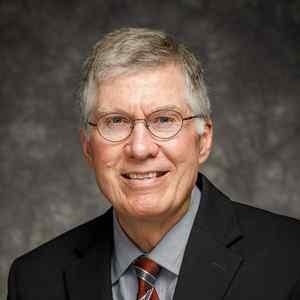
Monday Feb 11, 2019
Episode 046 - Daniel Hinshaw and the frontier between medicine and faith
Monday Feb 11, 2019
Monday Feb 11, 2019
I started off this part of the interview by asking Daniel about his own journey through life and faith. His early love was history, despite having a father who was also a doctor and an academic. His interests only turned to medicine after a time in Peru and exposure to brutal poverty, and then like many of us, he drifted into an academic career. Later in life he has been able to return to that original motivation.
Daniel and his wife were brought up in the Seventh Day Adventist faith, and still greatly respects the grounding in charitable work and the Bible he received then. Eventually he and his wife got the Newman bug and had to go deep into history and join one of the apostolic churches; they joined an Eastern Orthodox church.
In that context, Daniel laments the drift of the modern hospice movement away from Christian spiritual roots and into a secular, palliative mindset, and the broader question of what is missing from the often uttered or thought statement, "if it's legal, it must be moral."
"We confuse technological prowess with being deeper and more thoughtful."
An interesting consequence of our medical progress is that we now face a future where, for the first time, across the world, most people will die of conditions derived from aging rather than contagious diseases, accidents, childbirth, etc.
We discuss a bit the golden mean to be found, steering clear of euthanasia on the one hand, and of resorting to excessive means to stay alive in the face of a fatal illness.

